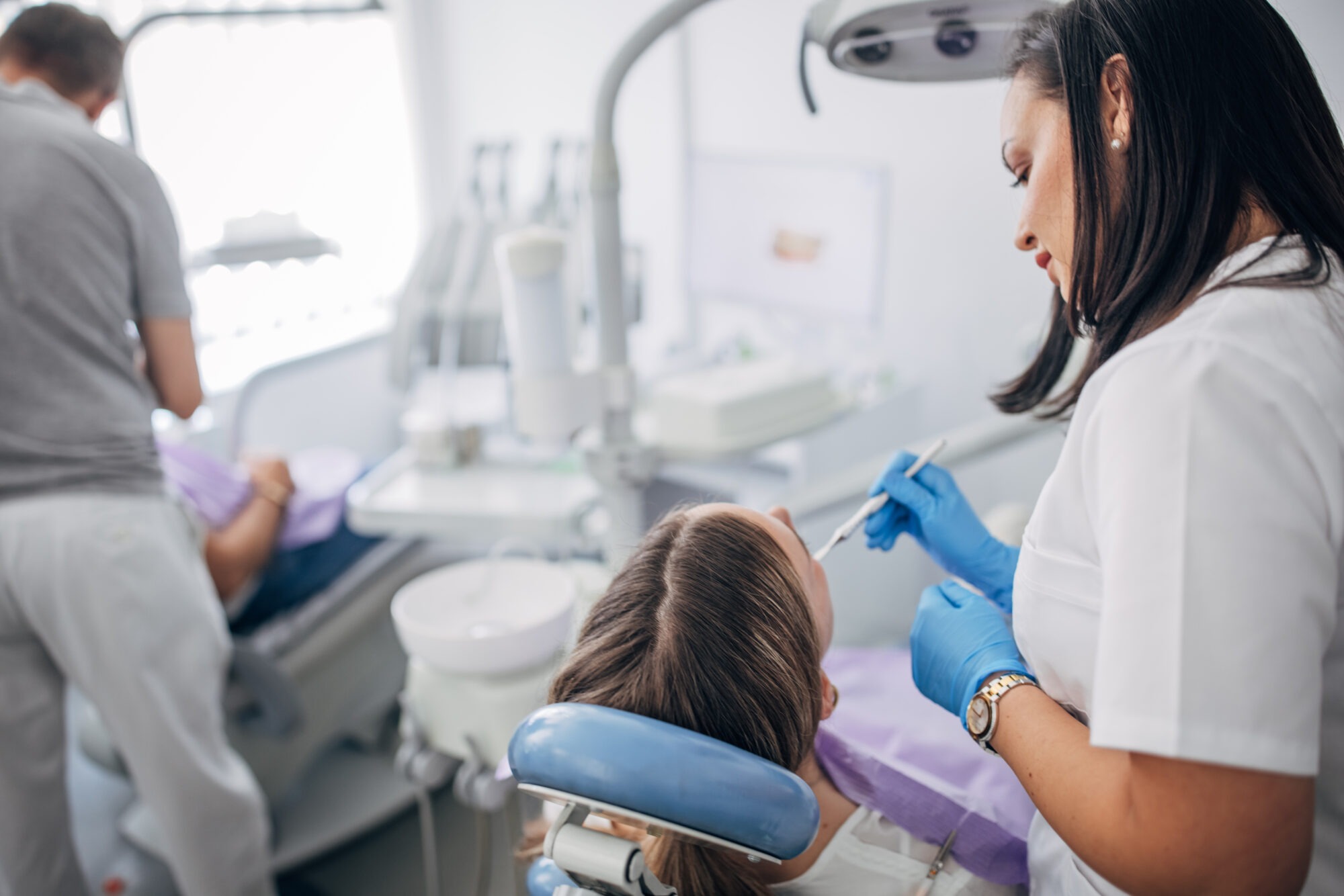Have you ever had a dental issue and postponed getting treatment because you didn’t know where to go? Unfortunately, this happens a lot! With so many specialties to pick from, it can be hard to get started. Your first thought might be to call your dentist, but sometimes your dentist isn’t the right dental professional. Sometimes, you need an orthodontist like Dr. Heinrichs at Heinrichs Orthodontics! But what’s the difference between an orthodontist and a dentist? Let’s find out!
What Is A Dentist?
When we think of maintaining our health, our minds often gravitate towards diet, exercise, and regular medical check-ups. Yet, integral to our overall well-being is the health of our mouth, and at the forefront of this domain is the dentist.
Why? Well, a dentist is like the primary care provider of your mouth. They are medical professionals specialized in diagnosing, preventing, and treating conditions and diseases of the oral cavity. Beyond the technical aspects of their job, dentists also play a pivotal role in educating patients about oral hygiene. They provide guidance on brushing techniques, the importance of flossing, and dietary habits that can either benefit or harm dental health.
Essentially, dentists are responsible for ensuring the well-being of your teeth, gums, and jaw. When you see your dentist every six months (or as frequently recommended by your provider), you receive a professional teeth cleaning, which helps maintain the integrity of your teeth’s enamel, X-rays, and a thorough medical examination.
These checkups allow you and your dentist to find and treat issues before they worsen. Dentists often serve as the first line of detection for more specialized dental needs. If there’s an infection in the gums or a need for orthodontic intervention, it’s typically your dentist who identifies the concern and refers you to specialists, such as a prosthodontist or the team at Heinrichs Orthodontics.
What Is An Orthodontist?
Orthodontists, like Dr. Heinrichs, are the architects behind the straight smiles and harmonious facial profiles many aspire to have.
After obtaining their dental degree, orthodontists undergo additional years of specialized training in an accredited orthodontic residency program. This rigorous education equips them with the expertise to diagnose, prevent, and treat dental and facial irregularities.
A need for orthodontic care can arise from various factors, including genetic predisposition, early loss of baby teeth, or habits like thumb-sucking. An orthodontist’s expertise allows them to identify the underlying causes of your specific concerns and recommend appropriate action.
Beyond addressing misalignments, orthodontists can also tackle more complex facial and dental irregularities. They assess the jaw and face’s overall structure, ensuring that aesthetics and function are optimized. This holistic approach ensures that patients not only achieve a harmonious smile but also benefit from improved speech, chewing, and overall oral health.
Like your dentist, orthodontists often work with other dental professionals. Whether collaborating with a general dentist to coordinate a treatment plan or consulting with oral surgeons on more intricate cases, orthodontists are integral dental care team members.
How Do You Know Who To See?
Navigating the world of oral health can sometimes feel like a maze, especially when deciding between a dentist and an orthodontist. Here’s a simple guide to help you make an informed choice:
General Dental Concerns
- Routine Check-ups: Your dentist is the go-to professional for biannual cleanings and examinations.
- Tooth Pain or Decay: Experiencing a toothache or suspect a cavity? A dentist will diagnose and treat these issues.
- Gum Health: If you have concerns about gum disease or need deep cleaning, your dentist has the expertise.
Alignment and Structural Concerns
- Misaligned Teeth: If your teeth are crooked, crowded, or spaced too far apart, an orthodontist can provide solutions.
- Bite Issues: Overbites, underbites, and crossbites fall under an orthodontist’s domain.
- Jaw Discomfort: If you experience pain or discomfort in the jaw, especially when chewing or speaking, it might indicate a need for orthodontic intervention.
Remember, these professionals often work hand-in-hand. Your dentist might refer you to an orthodontist if they spot alignment issues, and your orthodontist might send you to the dentist if they see a cavity. It’s all about ensuring you receive comprehensive care tailored to your unique needs.
Should You Keep Your Dentist Once You See An Orthodontist?
Yes, without a doubt, you should continue seeing your trusted dentist after you begin your orthodontic journey! For the safest orthodontic experience, your teeth and gums must be healthy. Attending your dentist appointments ensures your teeth remain healthy before, during, and after orthodontic treatment. Additionally, good oral health is essential to guarantee your smile looks as good as you hoped for at the end of treatment. Issues in your oral health can complicate your orthodontic experience and cause cosmetic issues, so don’t skip any dental check-ups!
Discover What Orthodontics Can Do For You At Heinrichs Orthodontics!
Think you might need braces or clear aligners? Visit our team at Heinrichs Orthodontics! Dr. Heinrichs is passionate about improving smiles, bites, and facial irregularities so that every person in Saskatoon and surrounding areas can be self-assured and in good health. With his years of experience and commitment to staying up-to-date with the latest treatment methods and technologies, you can feel confident you’re getting the best care available. Schedule your or your child’s free consultation today to get started!






